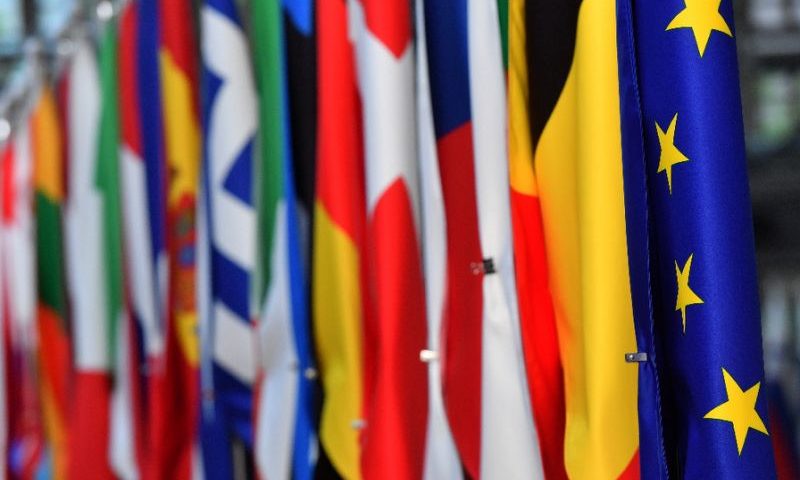
Royal Ascot 2019: Racegoers put on a bold display in huge hats for Ladies Day
June 20, 2019
Andy Murray back in business as he shocks Queen’s top seeds in doubles return
June 21, 2019
European leaders will try once again Thursday to agree on a compromise EU leader after political groups failed to unite behind a candidate.
None of the leading names to have emerged during last month’s European election has won consensus support from the four mainstream parties to become president of the European Commission, the EU’s executive arm.
This lowers the threat that Thursday’s summit will turn into a stand-off between rival capitals, but could also delay efforts to fill Brussels’ top job.
“I remain cautiously optimistic, as those I have spoken to have expressed determination to decide swiftly,” EU Council president Donald Tusk said of Thursday’s desired outcome.
Tusk chairs EU leaders’ summits and has set his colleagues the task of agreeing on a nominee to replace Jean-Claude Juncker as Commission head.
Other jobs up for grabs include speaker of the European parliament, which will sit for the first time on July 2, and foreign policy chief.
National leaders want to control the process and dole out the most senior jobs in a way that balances men and women, east and west, small countries and large.
But the results of the European election forced the main conservative, socialist, liberal and Green parliamentary blocs to form a majority coalition.
The parties, while working to draft a joint political programme, have not yet fallen behind a particular leader.
One possible candidate is Bavarian conservative MEP Manfred Weber, who led the centre-right EPP grouping to take the biggest single bloc of seats.
But he has failed to win over Dutch social democrat Frans Timmerman’s S&D or the liberal Renew Europe group, which backed Danish commissioner Margrethe Vestager.
The final nominee must have the backing of least 21 of the 28 EU leaders and a majority in the 751-member parliament.
– Power-sharing deal –
“The person who is capable of gathering this double-majority has not yet emerged,” a European diplomatic source told AFP on the eve of the meeting.
Despite this apparent setback, the mood in Brussels was cautiously upbeat, as some progress seems to have been made on a power-sharing deal.
According to three sources close to the negotiations, the leaders are expected to agree that the EPP will win the Commission presidency.
Renew Europe hopes to see a liberal replace Tusk as president of the leaders’ European Council, and the socialists will provide a foreign policy chief.
Finally, the Greens could share the job of presiding over the five-year parliament with the socialists, with each providing a speaker for two-and-a-half years.
“But all this could still shift a bit,” a European official warned.
Even if the rumoured jobs break-down holds, it would remain to pick names, and Tusk has promised to try and find posts for at least two women.
“It’s a good thing we abolished roaming charges in the Union, because the ‘phones are red hot,” one diplomat joked.
One potential hurdle has been avoided, summit planners believe. France and Germany are no longer on a collision course over the jobs.
– What does France want? –
French President Emmanuel Macron had frustrated Chancellor Angela Merkel by opposing her German ally Weber without offering an alternative name.
But the pair have been in touch daily in the run-up to the meeting and, in the words of a senior German diplomat, “now we know what the French really want.”
One option might be Europe’s ambitious Brexit negotiator, Michel Barnier, a former French minister who is a member of Merkel’s EPP.
But the party is said to have other names up its sleeve and French and German sources agreed the chancellor is not ready to cede the prize to a Frenchman.
Tusk wants to move quickly but if there is no final agreement, talks will continue.
The six powerful EU leaders invited to the G20 summit in Osaka on Friday and Saturday next week will take the chance to continue the discussion there.
And then, all 28 could return to Brussels on July 1, one day before the new parliament begins its opening session.afp




